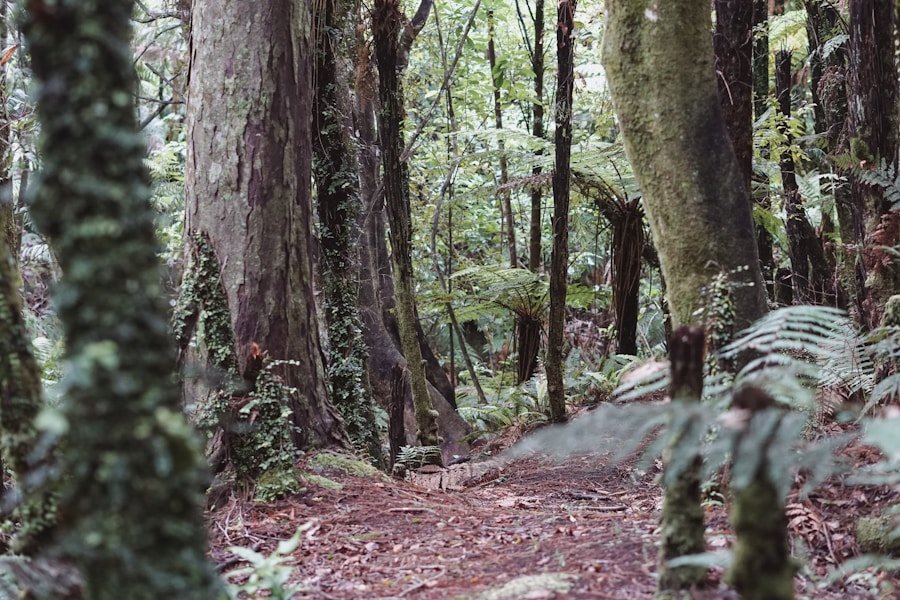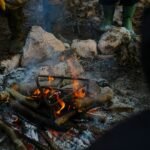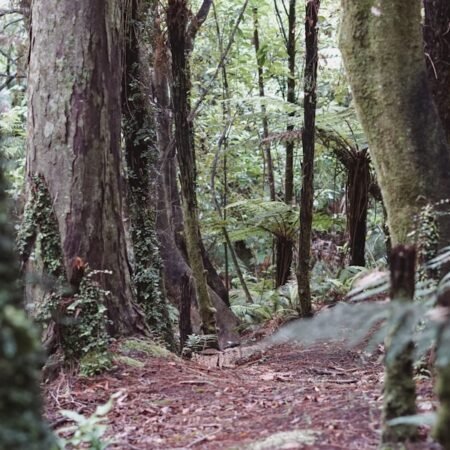When planning a camping trip, selecting a suitable campsite is crucial for ensuring a safe and enjoyable experience. Several key factors must be considered when choosing a secure location. Firstly, it is essential to select a campsite that is situated at a safe distance from potential hazards such as cliffs, unstable terrain, and bodies of water.
Additionally, it is vital to research the area and choose a location that is not prone to flooding or other natural disasters. Another critical consideration is the presence of wildlife in the area. While encountering wildlife can be an exciting aspect of camping, it is essential to minimize the risk of dangerous encounters.
Campers should opt for a site that is located away from areas known to be frequented by wildlife and take necessary precautions to store food and garbage properly, thereby reducing the likelihood of attracting animals to the campsite. The accessibility of the campsite is also a vital factor to consider. In the event of an emergency, it is crucial to have easy access to the campsite, and campers should familiarize themselves with the area and potential evacuation routes.
In summary, choosing a safe campsite is paramount for a secure and enjoyable camping experience. Campers must consider factors such as potential hazards, wildlife encounters, and accessibility when selecting a campsite. By taking the time to carefully choose a secure location, campers can minimize the risk of accidents and ensure a safe and enjoyable outdoor adventure.
Key Takeaways
- Choose a campsite away from cliffs, unstable trees, and bodies of water to avoid potential hazards.
- Always follow local regulations and guidelines for building and maintaining a campfire, and never leave it unattended.
- Minimize wildlife encounters by properly storing food in bear-proof containers and keeping a clean campsite.
- Be prepared for changing weather conditions by packing appropriate clothing and gear, and staying informed about the forecast.
- Practice personal safety by keeping valuables secure, being aware of your surroundings, and respecting the environment by leaving no trace.
Campfire Safety: Best Practices for Building and Maintaining a Fire
Choosing a Safe Location
When building a campfire, it’s important to choose a safe location that is well away from any potential hazards such as dry grass or overhanging branches. Clear the area around the fire pit of any flammable materials, and be sure to have a supply of water or a fire extinguisher on hand in case of emergencies.
Maintaining Your Campfire
Once your campfire is built, it’s important to maintain it properly to ensure safety. Never leave a campfire unattended, and be sure to fully extinguish it before leaving your campsite or going to bed. To extinguish a campfire, pour water over the embers and stir them with a shovel or stick to ensure that all the coals are fully extinguished.
Following Local Regulations
It’s also important to be mindful of local fire regulations and restrictions when building and maintaining a campfire, so be sure to check with park rangers or other authorities before starting a fire.
Conclusion
In conclusion, building and maintaining a campfire safely is crucial for minimizing the risk of accidents and wildfires while camping. By choosing a safe location, properly maintaining your campfire, and being mindful of local regulations, you can enjoy the warmth and ambiance of a campfire while ensuring the safety of yourself and others.
Wildlife Encounters: How to Minimize Risks and Stay Safe
Encountering wildlife is one of the most exciting parts of camping, but it’s important to take steps to minimize the risk of dangerous encounters with animals. When camping in areas known for wildlife, it’s important to properly store your food and garbage to minimize the risk of attracting animals to your campsite. Use bear-proof containers or hang your food in a bear bag away from your campsite to keep it out of reach of animals.
It’s also important to be mindful of your surroundings and make noise while hiking or walking through areas known for wildlife to avoid surprising animals. If you do encounter wildlife while camping, it’s important to remain calm and back away slowly without turning your back on the animal. Never approach or feed wildlife, and be sure to familiarize yourself with the types of animals that are common in the area where you will be camping.
In conclusion, minimizing the risk of dangerous encounters with wildlife is crucial for ensuring a safe camping experience. By properly storing your food and garbage, making noise while hiking, and being mindful of your surroundings, you can enjoy the beauty of nature while minimizing the risk of dangerous encounters with animals.
Food Storage: Preventing Animal Intrusions and Contamination
| Safe Camping Practices | Risky Practices |
|---|---|
| Choosing a safe campsite | Camping near cliffs or unstable terrain |
| Properly storing food | Leaving food out, attracting wildlife |
| Using a campfire safely | Leaving a campfire unattended |
| Properly disposing of waste | Leaving trash or human waste behind |
| Following wildlife safety guidelines | Approaching or feeding wild animals |
Proper food storage is essential for preventing animal intrusions and contamination while camping. When storing food at your campsite, it’s important to use bear-proof containers or hang your food in a bear bag away from your campsite to keep it out of reach of animals. Be sure to properly dispose of any food scraps or garbage in designated containers or by packing them out with you when you leave your campsite.
It’s also important to be mindful of food safety while camping to prevent contamination. Be sure to properly store perishable foods in coolers with ice packs or frozen water bottles to keep them at a safe temperature, and be sure to wash your hands and any cooking utensils before preparing meals. When cooking and eating at your campsite, be sure to clean up any spills or food scraps promptly to avoid attracting animals to your campsite.
In conclusion, proper food storage is essential for preventing animal intrusions and contamination while camping. By using bear-proof containers or bear bags, properly disposing of food scraps and garbage, and practicing good food safety habits, you can minimize the risk of dangerous encounters with animals and ensure that your food remains safe to eat while camping.
Weather Preparedness: Staying Safe in the Outdoors
Weather can be unpredictable, so it’s important to be prepared for a variety of conditions while camping. Before heading out on your camping trip, be sure to check the weather forecast for the area where you will be camping so that you can pack accordingly. Be sure to bring appropriate clothing for a range of temperatures and weather conditions, including rain gear and extra layers for cold weather.
It’s also important to be mindful of potential weather hazards such as lightning storms or flash floods while camping. If severe weather is forecasted for the area where you will be camping, be sure to have a plan in place for seeking shelter or evacuating if necessary. Be sure to familiarize yourself with local emergency procedures and evacuation routes before heading out on your camping trip.
In conclusion, being prepared for a variety of weather conditions is essential for staying safe while camping. By checking the weather forecast, packing appropriate clothing, and having a plan in place for severe weather, you can minimize the risk of weather-related accidents and ensure a safe and enjoyable camping experience.
Personal Safety: Tips for Protecting Yourself and Your Belongings
Personal safety is a top priority when camping, and taking the necessary precautions can make all the difference in ensuring a safe and enjoyable experience.
Securing Your Belongings
When setting up your campsite, it’s essential to secure any valuable items such as electronics or wallets in a locked vehicle or bear-proof container to minimize the risk of theft.
Staying Safe While Exploring
When hiking or walking through areas known for wildlife, make noise to avoid surprising animals and remain aware of your surroundings at all times. Be mindful of potential hazards such as cliffs or unstable terrain while hiking or exploring the outdoors.
Emergency Preparedness
Familiarize yourself with local emergency procedures and contact information for park rangers or other authorities in case of emergencies. This will ensure that you’re prepared in the event of an unexpected situation. By taking these steps, you can minimize the risk of accidents and ensure a safe camping experience. Remember, personal safety is crucial, and being proactive can make all the difference.
Leave No Trace: Responsible Camping Practices for Environmental Safety
Responsible camping practices are essential for minimizing the impact on the environment while enjoying the outdoors. When setting up your campsite, be sure to choose a location that minimizes the impact on vegetation and wildlife, and be sure to follow any designated trails or campsites in the area where you will be camping. It’s also important to properly dispose of any garbage or waste by packing it out with you when you leave your campsite.
When building a campfire, be sure to use existing fire rings or pits whenever possible rather than creating new ones, and be sure to fully extinguish your campfire before leaving your campsite. It’s also important to be mindful of noise levels while camping to avoid disturbing wildlife or other campers in the area. In conclusion, responsible camping practices are essential for minimizing the impact on the environment while enjoying the outdoors.
By choosing a low-impact campsite, properly disposing of garbage and waste, and being mindful of noise levels while camping, you can ensure that future generations will be able to enjoy the beauty of nature as well.
FAQs
What are some risky camping practices to avoid?
Some risky camping practices to avoid include leaving food unattended, not properly storing food to prevent attracting wildlife, not following fire safety guidelines, and not properly disposing of waste.
Why is it important to properly store food while camping?
Properly storing food while camping is important to prevent attracting wildlife such as bears and raccoons. This helps to ensure the safety of both campers and the animals.
What are some fire safety guidelines to follow while camping?
Some fire safety guidelines to follow while camping include checking for any fire restrictions in the area, keeping a safe distance from flammable materials, and fully extinguishing the fire before leaving the campsite or going to sleep.
Why is it important to properly dispose of waste while camping?
Properly disposing of waste while camping is important to minimize the impact on the environment and prevent attracting wildlife. This includes properly disposing of trash and human waste.













